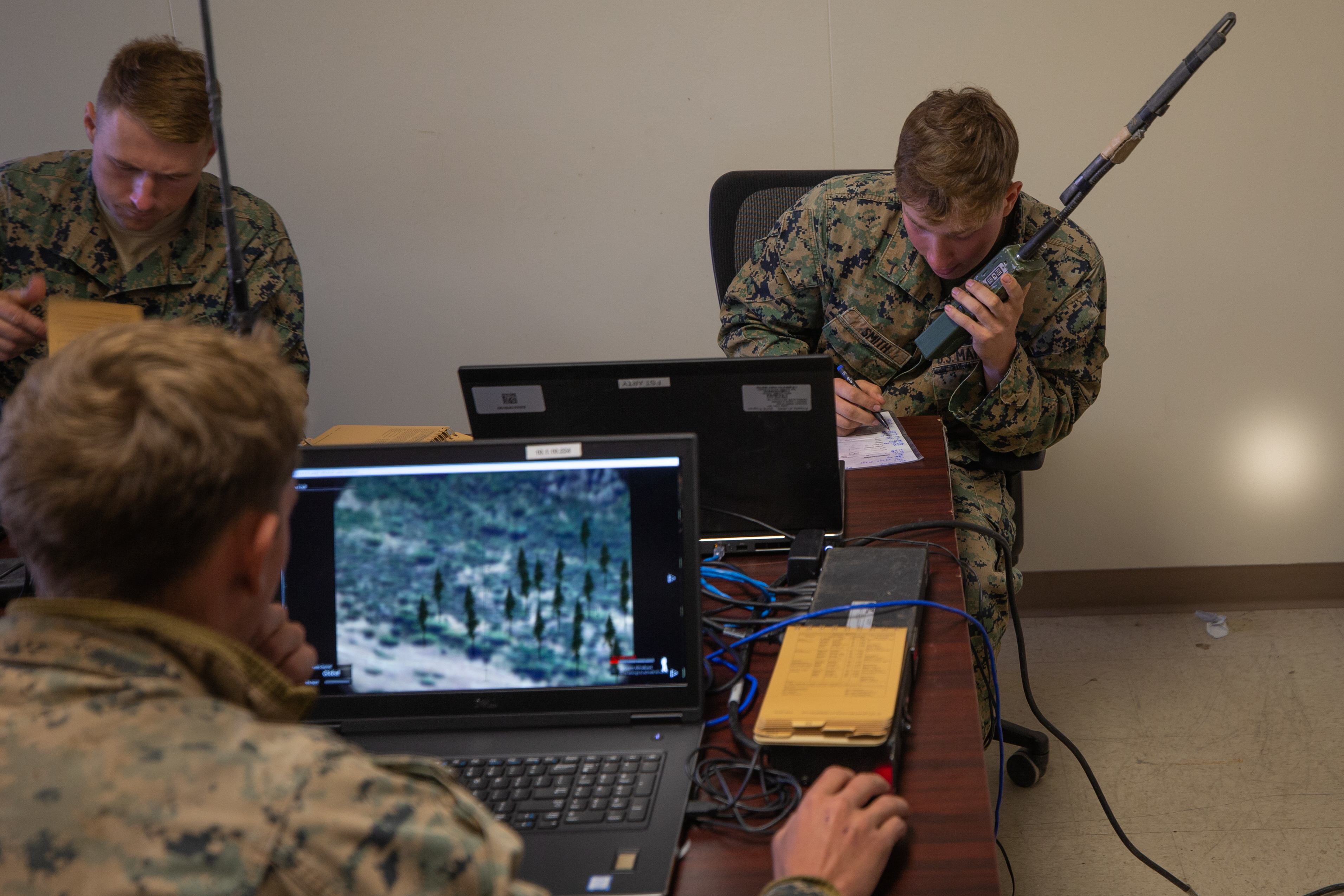
WASHINGTON, DC – The Marine Corps is offering live, virtual and constructive (LVC) training to Marines ahead of the service’s expected schedule, the top officer for Training and Education Command said Tuesday.
Project Tripoli is the Marine Corps’ new training platform that will allow Marines to train through live and virtual scenarios that are connected, allowing multiple units to train together despite not being physically together.
The Marine Corps did not expect to already offer Marines training opportunities through Project Tripoli, Lt. Gen. Kevin Iiams, commanding general of the Training and Education Command, said at the annual Modern Day Marine conference.
The service used the Navy’s continuous training platform, allowing the service to offer the LVC training earlier, Iiams said, speaking at the Modern Day Marine Conference. The Marine Corps used a Ground/Air Task Oriented Radar with synthetic tracks, one of the first examples Iiams gave of Marines utilizing LVC under Project Tripoli. Then two commanders would have to make decisions as if they were in a real scenario, deciding if they were shooting at a live ship or a synthetic one, Iiams said.
“It’s giving the Marine Corps the opportunity to train to all of these force design concepts and capabilities,” Iiams said of Tripoli.
Project Tripoli also gives the Marine Corps a solution to its lack of range space and training space that some of the platforms require, he said. The virtual aspect can also help the service train on more classified platforms or run more secretive scenarios.
“Our simulators are live force on force training that will occur anywhere from Twentynine Palms to either one of the […] three MEFs on location,” Iiams said. “And then [there] is a computer generating capability to inject Red Force Blue Force, so that we can actually plan and execute across the entire [Marine Air-Ground Tablet] in real time with everyone doing their full fidelity training.”
As an example, Iiams mentioned the F-35 Lightning II Joint Strike Fighter as a platform that Marines could train for in a simulator, but still participate in an exercise.
In addition to Project Tripoli, the Marine Corps is looking at a number of ways to enhance training and education, including the use of artificial intelligence.
For example, the Army War College had an artificial intelligence student – not a person, but a computer program – go through a course, said Brig. Gen. Maura Hennigan, president of Marine Corps University. It’s something that the Marine Corps University is also considering.
The idea is that having an AI student gives the military colleges the ability to see how students interact with it, which can play into wargaming and the idea of a thinking enemy, she said.
“And so [it] did everything that our students at the War College did, which was go through the exams, go through the writing prompts, go through the war games, and potentially in this instance, even be able to introduce it so that as we began [the] thinking system, or the intelligence Augmentation System, the IA [would] be able to introduce doctrine, pick the adversary or pick the individual, even introduce the papers that they have written, provide them all the analysis, how they would have thought at one time, and they’ll be able to use that individual in that experience,” Hennigan said.





